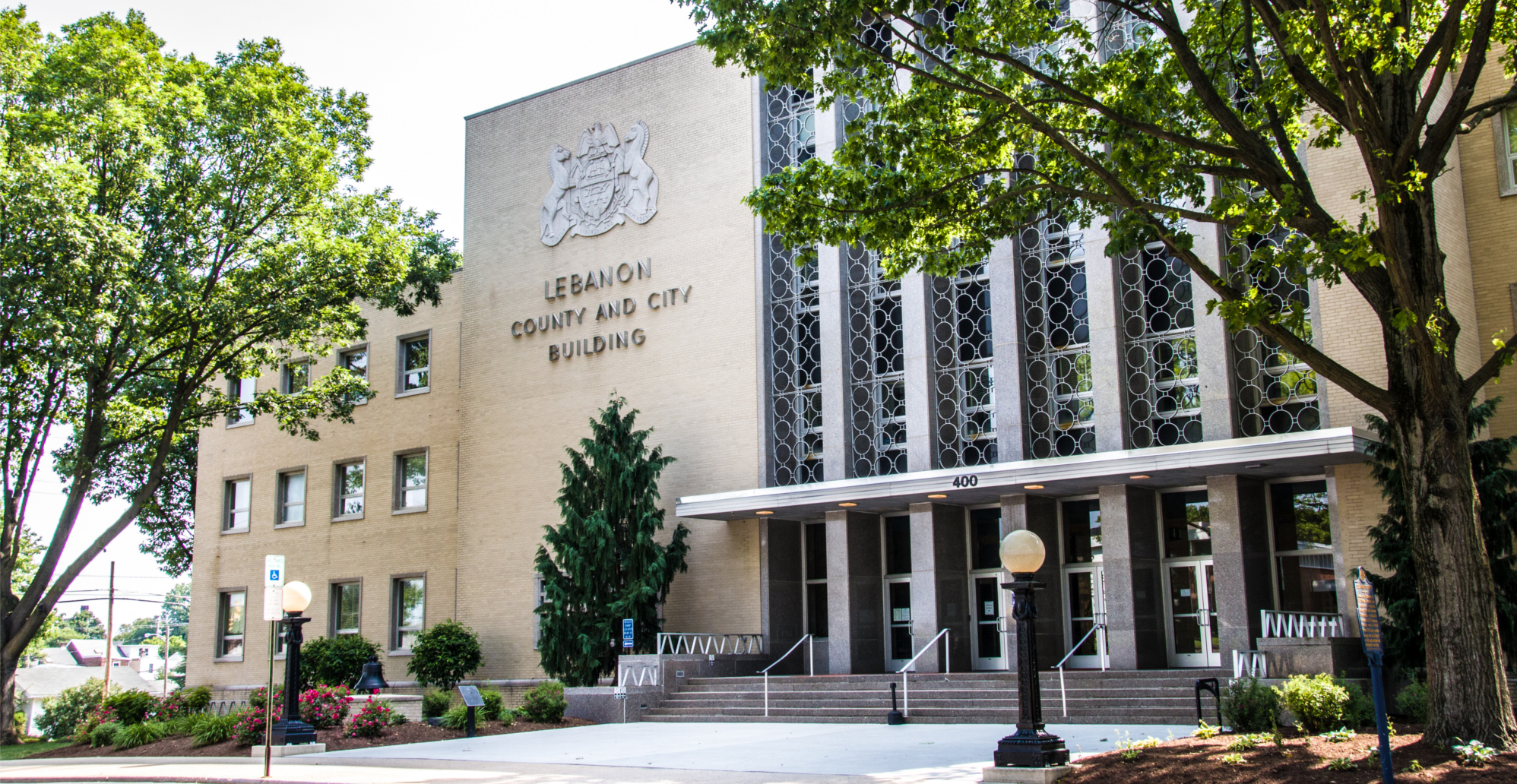Welcome to the Lebanon County Public Defender
Welcome to the Lebanon County Public Defender
 The Lebanon County Public Defender’s Office provides legal representation to indigent adult defendants and juveniles with misdemeanor or felony charges. Its mission is to protect the constitutional rights of its clients by appearing on their behalf at preliminary hearings before Lebanon County District Judges, before the Court of Common Pleas of Lebanon County, and before the Appellate Courts of Pennsylvania.
The Lebanon County Public Defender’s Office provides legal representation to indigent adult defendants and juveniles with misdemeanor or felony charges. Its mission is to protect the constitutional rights of its clients by appearing on their behalf at preliminary hearings before Lebanon County District Judges, before the Court of Common Pleas of Lebanon County, and before the Appellate Courts of Pennsylvania.
 The Lebanon County Public Defender’s Office provides legal representation to indigent adult defendants and juveniles with misdemeanor or felony charges. Its mission is to protect the constitutional rights of its clients by appearing on their behalf at preliminary hearings before Lebanon County District Judges, before the Court of Common Pleas of Lebanon County, and before the Appellate Courts of Pennsylvania.
The Lebanon County Public Defender’s Office provides legal representation to indigent adult defendants and juveniles with misdemeanor or felony charges. Its mission is to protect the constitutional rights of its clients by appearing on their behalf at preliminary hearings before Lebanon County District Judges, before the Court of Common Pleas of Lebanon County, and before the Appellate Courts of Pennsylvania.What Services do we provide?
The Office of Public Defender primarily represents indigent adult defendants and juveniles with misdemeanor or felony criminal charges. It also represents clients facing involuntary commitment at mental health hearings, persons charged with violating county probation or parole, persons charged with violations of the Protection from Abuse Act (PFA’s), and persons facing summary charges where incarceration is a potential sentence. Attorneys routinely appear on behalf of clients at preliminary hearings before Lebanon County District Justices, before the Court of Common Pleas of Lebanon County, and before the Appellate Courts of Pennsylvania.
The Office of the Public Defender will not initiate civil actions, nor represent clients on summary traffic offenses where jail is not a probable penalty. Additionally, we will not defend against initial petitions for PFAs.
Summons or Warrant
The first step in the criminal court procedure is either a summons or a warrant. If you have lesser charges, you will receive a summons. If the charges are more serious, you will receive a warrant. The summons or warrant will have information regarding the preliminary hearing.
Preliminary Arraignment
The next step is Preliminary Arraignment. At your Preliminary Arraignment the Magisterial District Judge will advise you of your charges and set a bail. The judge will set your bail depending on the charges, your criminal history, and what the judge perceives your risk to the public to be.
Preliminary Hearing
After your Preliminary Arraignment, you will have a Preliminary Hearing. At the Preliminary Hearing you will receive a Three Date Letter that has the dates and times of your court appearances (Formal Arraignment, Call of the List, Trial). The Preliminary Hearing is the first opportunity for the Commonwealth to present evidence. If the judge finds there is sufficient evidence, the case will move onto the next stage of litigation.
Formal Arraignment
At Formal Arraignment the judge will formally make you aware of the charges against you and the pretrial rights afforded to you. You may have the option to waive your right to arraignment, meaning you would not need to be present for this date. Your attorney will discuss this option with you prior to Arraignment.
Call of the List
At Call of the List you and your attorney will go before the judge and either enter a plea of guilty or no contest, list the case for trial, or request a continuance. If you enter a plea, the next proceeding is Sentencing. If you list the case for trial, the next proceeding is your trial date.
Trial
If at Call of the List your case was sent to trial, you will either have a bench trial in front of a judge or a jury trial in front of twelve citizen jurors. At your trial, evidence will be presented and either the jury or the judge will decide on a verdict. After your trial, if you are found guilty, the next step is Sentencing.
Sentencing
At Sentencing, the Court will hear from the District Attorney, defense council, and the defendant. The judge will decide whether he is accepting the plea agreement if you have one. If you do not have a negotiated plea agreement, the judge will fashion a sentence he feels appropriate based on the testimony at the sentencing hearing.
• Four (4) most recent pay stubs
• Statement of proof of Social Security Disability/Retirement benefits amount from within the last 30 days
• Statement from within the last 30 days with Unemployment Compensation benefits
• Statement from within the last 30 days with Food Stamps/Cash assistance benefits
• Order of Child Support received or ordered to pay
The only way to determine if you are financially eligible is to apply. After your application has been processed, we will let you know if you are approved or denied of our services.
